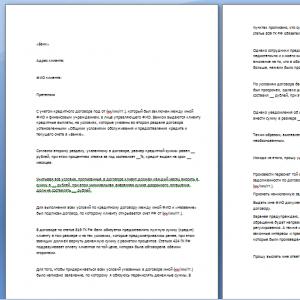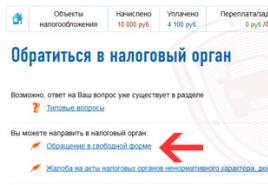Fish for kittens. Can cats fish? Is it possible to feed cats sea fish without heat treatment?
But giving cats fish is prohibited, including cats! Now you say: “Why is this all of a sudden?” And I will give you some evidence.
Evidence that cats should not be fed fish:
- The cat has been eating fish all her life! This is not true at all! It has already been proven that the ancestors of the domesticated cat were the African wild cat, which, in turn, did not hunt fish. The cat cannot fish on her own due to her fear of water (why are cats so afraid of water?). Well, maybe with the exception of a few unique people, I don’t mean those outrageous people who hang out near the aquariums. In general, fish is not a natural food for a cat; a bird, a mouse, some other small animals are another matter. And it was man who got the cat addicted to fish.
- Here in the village all the cats eat fish! Yes, but what is the average life expectancy (how long do cats generally live?) for representatives of a rural region? Of course, it cannot be said unequivocally that rural “Musi” live less than urban ones just because they eat fish. Many factors are involved here, but not least is the fish diet.
- Yes, I know a friend, girlfriend, acquaintance, etc. whose cat lived for 17-19 years and ate only fish! It happens. It’s just that your friend, girlfriend, neighbor was very lucky with a cat; he turned out to be a representative of exceptional health. But all this is an exception to the rule.
- What about canned fish for your cat? Or fish oil, which is very healthy? We'll talk about this below.
What's so bad about fish for cats?
- The first thing to suffer is the kidneys. The salts present in fish have a very bad effect on this organ.
- Development . Due to the high content of phosphorus and magnesium in fish, struvite - stones of the genitourinary system - can form.
- Worms. The development of opisthorchiasis is helminth infestations that affect the gallbladder, liver, and pancreas. The highest content is in carp fish.
- Lack of vitamins. Some fish contain the enzyme thiaminase, which destroys vitamin B1, which can result in anemia. Poor synthesis of vitamin K. The cat synthesizes vitamin K itself, but if it constantly eats fish, the synthesis process will be insufficient - the result is poor blood clotting.
- Seafood in general. All seafood is rich in iodine, which cats cannot absorb. The result is the development of hyperthyroidism.
- Bones. Small bones are the most common cause of injuries to the oral cavity, esophagus, and stomach.
- Content of harmful elements. Fish itself is a harmful food product. What is the current state of all reservoirs? There you can find elements of the periodic table that should not exist at all, and all this beauty ends up in the fish. This is especially true for predatory species. It should not be eaten by people, let alone cats. The same applies to artificially grown fish (trout, salmon), antibiotics, chemical additives, etc. are added to incubators.
- Constipation. Sometimes after eating fish products, a cat becomes constipated.
So why not give your cat fish at all now?
You can give! But it should not be the main part of her diet. Do you want to pamper your pet with fish? No problem, just do it right:
- Give us “premium” fish – halibut, hake, cod.
- Be sure to boil it - prevention of helminths, destruction of the thiaminase enzyme, see above why it is harmful.
- Remove bones, at least from the spine and head.
- Give no more than once a week.
Fish addiction!
Those who constantly feed their “Musya” fish, after reading the last rule (feed no more than once a week), now said: “What should I do now, she won’t eat anything else!?” And this is really a problem! Because cats become “fish addicted”. Sometimes they can even go on a hunger strike. Only the patience and ingenuity of the owner will help here. Remember that a cat is a carnivore, so fish protein can be easily replaced with meat protein.
Regarding canned fish for cats. First of all, the fish used is subjected to heat treatment, and to enhance the taste, fish meal is added to this food.
As for fish oil, I would advise giving special vitamins and supplements. For example Nutricoat, Brewers Yeast.
Feed your cat correctly, and she will find a way to thank you!
Is fish harmful to cats? You can hear different opinions on this matter. Representatives of cats in nature eat food of animal origin. They are carnivores, and their entire physiology is based on this. With animal feed, they receive the complete proteins and fats they need. They also supply the amino acid arginine, aminosulfonic acid, and arachidonic acid. These substances are necessary for full metabolism, proper functioning of various body systems, and reproductive function.
Domestic cats eat dairy products, some vegetables, and sometimes bread, but the basis of their balanced diet is still meat and fish. It is often included in prepared cat foods, e.g. Royal Canin.
It contains a lot of phosphorus. On the one hand, this is good. But some Russian veterinarians are of the opinion that an increased content of this mineral substance can cause urolithiasis in animals. How reliable is this? It is known that experiments in which cats received an increased dose of phosphorus with food did not confirm this. Foreign literature on ICD does not even mention this cause of the disease. It is believed that the development of the disease is associated with a congenital predisposition and peculiarities of the anatomical structure of animals.
You can give your cat fish, but not any fish, and in limited quantities. Raw pond, lake or river fish can be a source of helminthic diseases, such as opisthorchiasis. It is especially characteristic of Siberia. Therefore, cats are either not given river fish or given boiled. Moreover, cooking eliminates thiaminase contained in some of its types, which is harmful to cats, a substance that destroys vitamin B. Bones from boiled fish must be removed.
Sea fish is rich in microelements and minerals. There is less danger that the cat will become infected with worms through it, since it comes to us frozen. However, you cannot constantly feed your cat exclusively raw pollock, hake, haddock, and blue whiting. This type of fish contains trimethylamine oxide, which leads to anemia. Fish should be given no more than three times a week. Give the small ones whole, cleaned of scales. Large fish are given as fillets.
All sea fish are divided into white, or lean, and fatty. The first includes cod, hake, halibut, flounder, and haddock. It is rich in protein and minerals and low in fat. It is recommended for animals prone to obesity. Fatty fish such as salmon, mackerel, herring, capelin, sprat are given to cats of reproductive age and young animals.
In addition to fish, the cat is given meat and dairy products: cottage cheese, milk. Fats are added to food, the vegetables that she eats. Nowadays, ready-made food has become popular. They are balanced in composition and designed for animals of a certain age. It is advisable to combine them. When giving dry food, you need to remember that the animal must drink. Fresh water should be in the drinking bowl at all times. You need a varied diet. Under this condition, your cat will be healthy and strong.
Related Articles
If a cat lives on the street or is regularly let out, then it accumulates enough skills with which it survives even in the coldest weather. Another thing is a domestic cat. Unaccustomed to independent living, he will certainly ask to go home. Thick fur also protects from the cold, but its presence is only possible if the animal is healthy. If a kitten or an unseasoned cat lives at home, then it is not recommended to walk the animals in the winter season. It should be taught gradually, but it is better to start in the summer. So even the most severe frost will not be a shock for your pet. Resistance protection...
Who among us in childhood did not observe a picture when a cat, excited under the influence of drops of valerian, funnyly moves its paws, mysteriously “sweetly” meows, or rolls on the floor, shaking its back and muzzle against the place where the valerian was spilled. An interesting and sometimes funny picture raises many questions. One of them is “why do cats love valerian, and what benefits does this calming tincture actually have on cats? The smell of valerian, indeed, attracts animals to it like a magnet. Licking it, pressing their noses to it, the cats seem to be in an inadequate state, like real ones...
As a rule, when starting a cat in the house, the owners bring into the house not an adult animal, but a small kitten. How adorable are these fluffy creatures! They are playful and curious, and most of them have a beautiful blue eye color. At the same time, when they get a kitten, they take on great responsibility for its life and health. After all, a small creature is very susceptible to diseases, lack of care and many dangers that the world around us conceals. The mother cat, who fed them with her milk and protected them from adversity, is not around. The mistress or owner must take on the role of a caring parent...
Castration of male cats is a procedure that many people resort to. This is due to the peculiarities of keeping an animal in a city apartment. Many resort to castration because they do not want to let their cat go outside. There are many dangers for a pet in the city, and it may simply die. But you can’t keep an animal within four walls, it starts to go crazy and spoils household utensils. Unneutered cats also create a lot of inconvenience. Therefore, the majority of city dwellers who own cats castrate them. In rural and dacha areas, keeping a cat or a female cat can be as simple as...
Animals, like people, often get sick. The causes of the disease can be very diverse: heredity, improper feeding, weak natural immunity, metabolic disorders and many other factors leading to tragic consequences. If a disease is detected, treatment of the animal must be started immediately. Special diets designed to provide diet during illness are an important factor on the path to recovery. Diabetes. Diabetes mellitus is a serious disease that is quite common in cats. Diabetes leads to serious disorders in carbohydrate metabolism.
Indoor plants that grow on our windowsills, creating a cozy indoors, can be very dangerous for cats, especially for small kittens who are trying to get a taste of everything. It often happens that owners of domestic cats have no idea how dangerous some representatives of the plant world can be, not connecting the poisoning of their pet with the plants in the house. In this article I will list the most poisonous house flowers from which curious and omnivorous pets need to be protected. Philodendron. The juice of this plant contains acid that burns the mucous membranes.
A newborn or a small kitten without a mother cat is in your care. If you don’t know how and what to feed a kitten at home. Then, the article contains advice from owners and breeders who have successfully raised many kittens from birth to one year. They will help you ensure your kitten’s proper development and rapid growth.
 With such a tiny kitten, you need to be more careful in what you eat.
With such a tiny kitten, you need to be more careful in what you eat. Kitten and baby food
A newborn, one-month-old kitten can be fed with diluted baby formula and baby meat puree, but it is better to purchase a cat's milk substitute at a pet store.
It is best to feed a newborn kitten using a pipette or syringe tip without a needle. At one and a half months, kittens can lap and eat small pieces, and you can put a bowl for them. Read more in the article, which indicates the rules and secrets of feeding from 1 week to a year.
Price: 302 rub. 393 rub. 23% discount for you!
For kittens (0-4 months) and pregnant cats (400 g). Fast delivery throughout Russia. And also more than 3,000 other pet products at competitive prices!
Kitten and Whiskas
The opinion of veterinarians is unanimous: this food is not suitable for a kitten’s digestion. If you choose store-bought food for kittens, it is better to opt for premium food.
Price: 131 rub. 177 rub. 26% discount for you!
Cleanses the gastrointestinal tract and prevents constipation. Fast delivery throughout Russia. And also more than 3,000 other pet products at competitive prices!
Kittens and milk
Milk is vital for kittens up to three months of age, but for cats older than six months it can upset digestion. The best milk for kittens is cow's milk, which needs to be diluted by half.
Choosing fish for a kitten

Cooking porridge for the kitten
Breeders recommend diversifying the menu of a one-month or 3-week-old kitten with porridge. They are prepared with milk without adding sugar or salt. It is better to use crushed buckwheat or rice and offer it from three weeks of age.
Deadly food
Do not give your kitten sausages, sausage, sugar, salt, and avoid feeding from your table. The food from our table is dangerous for kittens.
Newborn kitten formula
If a cat milk substitute is not available to you, then you can make a similar one yourself. Take slightly diluted baby formula or half-diluted cow's milk, add egg whites in a 4 to 1 ratio and shake.
Menu from month to year
A one-month-old kitten can be given porridge with milk, from a month and a half a kitten can eat porridge with meat broth, a 2-month-old kitten is ready to eat boiled chicken and meat puree. Offer dry food soaked in water to a three-month-old baby. By six months, the kitten can eat raw minced meat and fish, and by one year it is ready to switch to dry food or raw meat in pieces.
Feeding kittens of exotic breeds
Breeders of British and Scottish Folds exclude carrots from the kitten menu, as it harms their color. need increased amounts of protein. The owner of a small exotic should not offer his pet thick porridge.
You may also be interested
Choosing a toilet for a pet is an important task for a person who decides to have an animal in
Cats sometimes travel too, and not only on their own, at the dacha or when they manage to escape
The cat is a natural carnivore, so meat content comes first when choosing cat food.
Your small, or not so small, pet brings a lot of joy, you sincerely
The nature of the mysterious cat purring is shrouded in mystery. All you have to do is stroke the cat's fur, and he
Cats are one of the most playful pets that are happy to involve you in this process.
Popular articles
Cats have an instinct for cleanliness. If a cat suddenly stops going to the litter box, this is how she tries to convey
The sucking reflex in a cat is formed in the neonatal period - in the first 7-10 days of life. Together with
You have decided to teach your pet to go to the toilet the human way: using the toilet. The system will help you implement your idea
At the initial stage, each kitten owner makes the only and responsible decision related to the choice of food. Let's consider
Surely many have seen funny videos in which ordinary domestic cats behave, to put it mildly, inappropriately. Often
“Feeding a kitten Whiskas means that it will have health problems!” – this is a statement here and there
From birth, the little kitten sucks milk, which is natural for him. When kittens are taken from
Well, what a strange question - is it possible to give cats fish? In any case, this is what most cat owners think, without particularly thinking about the answer. Well, of course you can. What else should make up the lion's share of your cat's diet, of course, if you don't feed her dry food? Read more about. However, do not rush to make hasty conclusions; after reading our publication, you will be convinced that cats should not be given fish... at least not often and in large quantities. How is this possible and why - we propose to find the answers on the pages of our article...
What do cats eat in nature?
The main argument of those who believe that cats can and should be given fish is the argument that they eat fish in Nature. But is this really so? If we remember that the domestic cat descended from the wild African cat, whose diet did not include fish, one can begin to doubt this statement. In addition, due to the fear of water (it is genetically inherent in most representatives of the cat family), cats cannot fish. No, there are, of course, exceptions to the rules - some cat breeds (for example), whose representatives are excellent fishermen, but you can count them on your fingers, therefore, we can conclude that fish is not the mainstay of a cat's diet. And, if someone “hooked” the meowing and purring cats onto a fish diet, it was a person who found it more convenient to feed the cats with his fish catch, and not with birds, mice and other small animals that he did not catch.
Fish in the diet of cats
Well, we have established that fish is not the basis of a cat’s diet. But what happens to them if she appears in it? Since the body of these creatures is not adapted and not adapted to the digestion of such food, and to its composition as a whole, an animal that “sits” on a fish diet has certain health problems. By the way, this is one of the diseases that results from a fish diet in your cat.
Consequences of a fish diet for cats

If you don’t draw the right conclusions from the above (it’s clear that it’s more convenient to cook fish for your cat and forget about the headache associated with finding what to feed your pet and how to diversify its diet), big trouble awaits you. In particular…
- The salts contained in fish negatively affect the functioning of the kidneys and damage this organ. That is why, when giving recommendations regarding the feeding of castrated cats, veterinarians focus on excluding fish from it. The body of a castrated cat is more vulnerable, and it is not recommended to give it fish. Read more about this. By the way, it is fish that is the main provocateur of the development of urolithiasis, since the magnesium and phosphorus contained in its composition are the “building blocks” from which kidney stones are built.
- Fish and worms are almost synonymous. But, indeed, the source of helminthic infestation most often is fish (more about). It is especially unpleasant to deal with opisthorchiasis - a long-term, constantly worsening helminthiasis that affects the gallbladder, liver, and pancreas. Its source is usually carp fish.
- The constant inclusion of fish in a cat’s diet leads to the development of hypovitaminosis in the latter (read more about vitamin deficiency and hypovitaminosis in cats). Since an enzyme called thiaminase, present in some types of fish, can destroy vitamin B1 and disrupt the processes of iron binding, making it unsuitable for absorption by the cat’s body. As a result, the animal develops anemia. But long-term consumption of fish (some cats “sit” only on it all their lives) significantly undermines the vitamin E resources in their body, which is also not very good for the health of mustachioed tabbies. Another vitamin that cats are deficient in when eating a fish diet is vitamin K. Let us remember that it is necessary for the animal’s blood to clot properly. And, although animals, in particular cats, are able to independently synthesize their own vitamin K from the food they receive, a fish diet, on the contrary, disrupts the synthesis of this vitamin, and even the slightest bleeding can have dire consequences for your pet. Also, it is generally accepted that seafood, including fish, are rich sources of iodine; with regard to cats, it is worth considering the fact that they cannot absorb iodine in large quantities, no matter how much we want it. Therefore, if you regularly include fish in your pet’s diet, you and I can observe that he has hyperthyroidism, increased function of the thyroid gland with all the ensuing negative consequences for his body.
- And, although your cat can crunch fish bones so appetizingly, and you think that they do not pose any threat to her strong jaws and sharp teeth, in fact, fish bones are one of the common causes of injuries to the animal’s larynx, esophagus or intestines cats. Even if you take on the mission of choosing fish bones, it’s not a fact that you won’t miss one of them...
- Fish protein is, according to experts, one of the most allergenic foods that threaten the body of cats. And, as you and I know, allergies are not very pleasant. Therefore, if your animal is prone to allergic reactions, and you intensively offer it a fish diet, do not be surprised why your cat so often becomes a patient at the veterinary clinic. It doesn't take long for an animal to die. In this context, the road to hell will be paved with fish...
- Look at the environment in which we live, what is happening to the environment now... Taking this into account, we can come to the conclusion that fish is far from a safe product, especially for cats. After all, in modern reservoirs there are often those elements of the periodic table that should not be there at all. And, most of them settle as dead weight in your pet’s body. As for predatory fish species, the permissible level of heavy metals (including mercury) is almost always exceeded, toxins and pesticides are present. Such fish can cause irreparable damage to human health, and cats, due to their smaller size, are all the more susceptible to all these risks. In addition, do not forget that many types of sea and river fish today are grown in special incubator pools, and in order to speed up the growing processes, antibiotics and chemical additives are added to the fish food, which then enter your cat’s body along with the fish.
- And, finally, one of the most “killer” arguments. A cat that eats exclusively fish can be easily identified by the smell that comes from its litter box after it has gone to the toilet. You may not have paid attention to this before, however, the fish diet makes itself felt with a terrible smell that is difficult to overcome with anything. Well, if you feed your cat pollock before that... The aromas that will come from the cat's litter box will be ready to overwhelm even the most odor-resistant nose. Read about choosing cat litter
Fish is considered the most cat-friendly product, but in fact it is fraught with many threats to the cat's body.
A cat eating a fish is a classic picture, as is a cat stealing sour cream. It would seem that there is nothing sweeter to a cat’s heart than fish, but is it really possible to give it to these animals? And if so, what kind should it be: boiled or raw and what type? And if not, then for what reasons?
Scientific research shows that the modern domestic cat is a descendant of the African wild cat, not fishing cats. For this reason, fish is not a natural food for cats. According to veterinarians, today there are a lot of arguments against feeding cats fish (meaning feeding fish as the basis of the diet).
There are a number of problems, some of which already have the status of established and proven facts, while others still remain controversial. From their position, feeding a cat fish is hardly advisable, regardless of whether it is raw or boiled. Of course, it is better to feed fish than bread, sausage or cereal, as often happens in everyday life, but if compared with, then feeding fish has a lot of disadvantages. The main problems are what is in the fish and what is not in it. Let's list these problems:
Of course, the owner himself will decide whether to feed the cat fish or not, but if he decides to listen to the recommendations of veterinarians, then this should not be done more than once a week. In this case, you should take care to clean the fish from bones, otherwise injuries to the digestive tract are likely. In addition, the fish must be boiled to destroy harmful enzymes and destroy helminths. In a word, fish can be used in a cat’s diet only as a rare treat, but not as the basis of the diet. Remember that cats that eat mostly fish may look good, but they don't live long. Typically, their life expectancy is 4-5 years, instead of the normal 10-20 for cats.







